Addiction and co-occurring mental health concerns can impact every aspect of your life. From your professional pursuits to your person relationships, it can be difficult to move forward toward a healthier, more balanced life. However, those who seek treatment at Athens Addiction Recovery Center have access to multiple evidence-based therapeutic techniques, such as dialectical behavior therapy (DBT), to help them develop healthy coping skills and promote long-term healing.
DBT is a specialized form of cognitive-behavioral therapy that emphasizes the development of healthier coping skills, such as mindfulness and emotional regulation, to better manage painful emotions and reduce self-destructive behaviors.
If you’re looking for dialectical behavior therapy in Athens, GA, reach out to Athens Addiction Recovery Center at 844.959.4998 today.
What Is Dialectical Behavior Therapy?
Dialectical behavior therapy is a form of psychotherapy that focuses on understanding the positive and negative aspects of emotions in order to help individuals develop healthier coping skills and better manage their mental health.
There are four core components of DBT:
- Mindfulness – Learning to become aware of the present moment and accepting all your thoughts, feelings, and behaviors without judgment.
- Distress tolerance – Developing strategies to better manage intense emotions, such as deep breathing and relaxation techniques.
- Emotional regulation – Learning to identify and express emotions in a healthy manner, as well as manage difficult emotions that cause distress.
- Interpersonal effectiveness – Working on communication and problem-solving skills to foster healthy relationships with others.
These four components work together to help participants in this therapy understand and positively manage their emotions, reduce unhealthy behaviors, and develop better coping skills.
Four of the Most Effective DBT Techniques
Learning more about addiction and its underlying causes is an essential part of recovery, but building healthy coping skills and developing healthier habits is just as important. Here are four of the most effective DBT techniques that can help promote healing from addictions and co-occurring mental health conditions:
1. Mindfulness Exercises
Focusing on the present moment can help you become aware of your thoughts, feelings, and behaviors without judgment. Mindfulness exercises, such as meditation and yoga, can help with this.
During these activities, your therapist will guide you through breathing exercises, visualization techniques, and other activities that can help you relax and stay present in the moment.
2. Radical Acceptance
Sometimes it can be difficult to accept negative feelings and emotions as part of life. But learning to embrace these experiences without judging yourself can help you better manage them instead of avoiding or numbing them with unhealthy behaviors.
Your therapist will work with you to accept what is out of your control and focus on being mindful of the present.
3. Emotion Regulation
DBT helps you learn to express yourself in a healthy way and better manage your emotions. This can include learning effective coping skills for stress management, such as deep breathing and relaxation techniques.
You and your therapist can also work on better communication skills, such as active listening and assertiveness training, so you can better express yourself to others.
4. Interpersonal Effectiveness
Relationships can be complicated, but learning how to effectively communicate and manage your relationships can help you build healthier ones.
By developing communication and problem-solving skills, such as learning how to set boundaries and deal with conflict, you can foster healthier relationships with family, friends, coworkers, and partners.
Reach Out to Athens Addiction Recovery Center Today
Athens Addiction Recovery Center offers dialectical behavior therapy and other evidence-based approaches to treatment. If you or a loved one are struggling with addiction or co-occurring mental health conditions, our team of experienced professionals can provide the support and guidance you need to start your journey to recovery. Contact us today at 844.959.4998 to learn more about our programs and how we can help.

